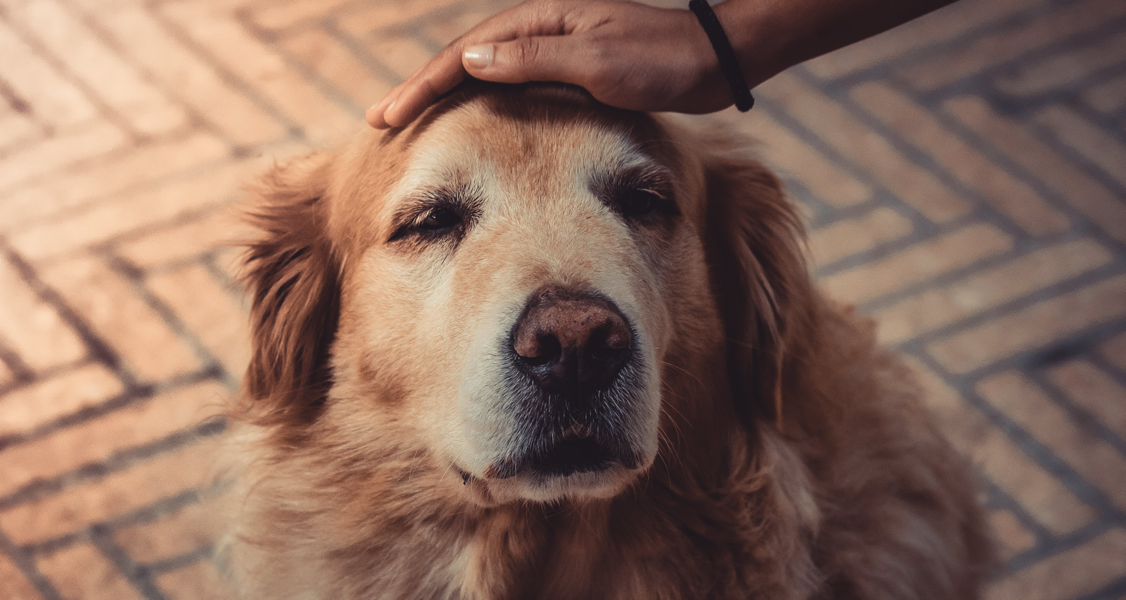Practical Strategies for Caring for Dogs with Dementia
Feb 1, 2024

If you’re a dog owner, you know that each pup has its own unique personality and needs. But what if your furry friend starts showing signs that aren’t just part of getting older but are symptoms of canine cognitive dysfunction (CCD)? In simpler terms, dog dementia? Unlike caring for other dogs, those with dementia require extra patience and understanding.
Perhaps you’ve noticed changes in your dog’s behavior – maybe they seem confused at times, have trouble finding their way around the house, or their sleep patterns have changed. These could be signs of CCD. Handling a dog with dementia is a journey that requires a heart full of love and a mind equipped with knowledge.
Don’t worry, you’re not alone on this journey. If your dog is facing these challenges, you’ve come to the right place. Here, we’ll share practical strategies besides medication and supplements to help you care for your dog with dementia.
Let’s explore!
Maintaining a Routine
Maintaining a routine is like setting a comforting rhythm for your dog’s day-to-day life. Consistency becomes their anchor. A regular schedule offers a sense of security and familiarity when their world feels unpredictable due to memory issues. It helps in reducing their anxiety and confusion.
To establish this stable routine, try these simple yet effective tips: Feed them at the same times every day. Keep their walks, playtime, and bedtime consistent. Even the smallest routines, like a morning cuddle or an evening brush, can make a big difference.
Remember, the goal is to create a predictable environment where your dog feels safe and loved. This steady pattern supports their mental health and strengthens their bond with their furry friend.
Using Tech to Assist in Care
These days, it is easier to care for furry friends with dementia with the help of technological advancements. You can use several gadgets to ease your management and dog care. The following are a few examples:
GPS Dog Collars:
Imagine always knowing where your furry friend is, even when you can’t be beside them. That’s where a GPS dog collar comes into play. This gadget is a game-changer, especially for dogs with dementia who might wander or get lost. Besides tracking your dog’s location in real-time, the best GPS dog collar also lets you get their weekly health reports. Choosing the ones with good battery life and features like LED light and waterproofing is suggested for the best results.
Automated Feeders:
As you know, consistency is key in the life of a dog with dementia; hence, you should use tech to maintain that. One of them is using automated feeders. These feeders dispense food at pre-set times, ensuring your dog eats regularly even when life gets busy. It’s not just about convenience; it’s about keeping a vital part of their routine intact. As a result, it can be comforting for dogs experiencing confusion or memory loss.
Smart Cameras:
Smart cameras let you watch your dog when you’re away. These cameras have features like two-way audio. It allows you to hear and speak to your dog, providing reassurance to them and you. It’s a great way to monitor their behavior and ensure they’re safe, even from afar.
Cognitive and Sensory Stimulation
Cognitive and sensory stimulation are brain exercises for your dog, especially crucial when facing dementia. It is a workout for their mind, helping them to keep their brain active and engaged. This kind of stimulation can slow down the progression of dementia symptoms by providing mental challenges that keep their brain cells firing.
You can engage your dog in activities like puzzle toys, scent games, or gentle, interactive play. These activities aren’t just fun; they help maintain your dog’s cognitive functions and can improve their quality of life.
They’re also a great way for you to bond with your dog, creating joyful moments together.
Emotional Support and Wellness
Just like humans, dogs can feel anxious or confused as their cognitive abilities change. Your loving presence, gentle touch, and soothing voice can be incredibly reassuring to them.
Dementia can cause changes in behavior or memory, and your dog might not act like their usual self. They might forget commands or routines they once knew. It’s important to stay calm and understanding, rather than getting frustrated.
You can provide emotional support by spending quality time together, offering gentle pets and cuddles, and speaking softly and reassuringly. These simple acts of love and patience make a huge difference.
Bottom Line
As you journey through the challenges of caring for a dog with dementia, remember your love and dedication make all the difference. The strategies we’ve mentioned are tools to make this path smoother. Your patience, understanding, and emotional support are invaluable. While the road may have its ups and downs, the bond you share with your furry friend remains a source of comfort and joy for both of you.
Disclaimer: healthcareforpets.com and its team of veterinarians and clinicians do not endorse any products, services, or recommended advice. All advice presented by our veterinarians, clinicians, tools, resources, etc is not meant to replace a regular physical exam and consultation with your primary veterinarian or other clinicians. We always encourage you to seek medical advice from your regular veterinarian.

